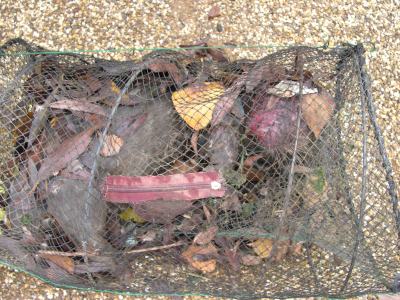The irresponsible and illegal setting of crayfish traps is leading to an increased number of otter deaths across East Anglia. The Environment Agency has investigated four separate incidents in Cambridgeshire and Buckinghamshire where six dead otters have been found drowned in crayfish traps.
Otters are a protected species so killing them is illegal and could lead to a fine of up to £5,000 or imprisonment for up to six months.
People set traps to catch crayfish, often with the intention of eating them. The bait in the trap tempts the otter into it, from which it then can’t escape. This leads to the otter drowning under the water.
Andy Sadler from the Environment Agency’s Fisheries and Biodiversity Team commented, "A lot of work has been carried out to encourage otters in the county and numbers are now recovering. To find them needlessly killed is very disappointing, especially when people trapping crayfish can take simple measures to stop it happening."
Anyone setting a crayfish trap must have consent from the Environment Agency and the owner of the river bank where they want to set the trap. If a trap is allowed, it must conform to strict size dimensions and some designs need to be fitted with an otter guard to stop otters getting into them. Some traps can also unintentionally trap water voles, another rare British mammal.
Andy continued, "Anyone wanting to set a crayfish trap must contact us and we will advise them on the byelaws they must comply with. As otter numbers recover it is becoming more likely that they could get caught in a trap so people really must think about this when setting crayfish traps."
Matt Johnson of Huntingdonshire District Council Countryside Services, who manages the site where one of the dead otters was found said, "Knowing the wildlife value of the area we do not allow traps to be set on the brook, especially as we have been working hard to increase otter numbers there. We were extremely sad to find the dead otter in our park, particularly as we don’t think there are any crayfish in this part of the river."
Ruth Hawksley of the Wildlife Trust who has been closely involved with the project to help otter numbers recover said, " Otters are well adapted for life in the water so drowning is a particularly slow and cruel death for them. We urge anyone who is using crayfish traps to do so legally and to fit an otter guard where necessary."
The Environment Agency does collect dead otters, whatever the cause of death, when they are reported to them and sends the otters away for post-mortems. This establishes the age, sex, weight and cause of death and gives valuable information on the general health and population of otters in the area.
Anyone who suspects that a trap has been set illegally or who finds a dead otter should contact the Environment Agency’s free Incident Hotline on 0800 80 70 60.










